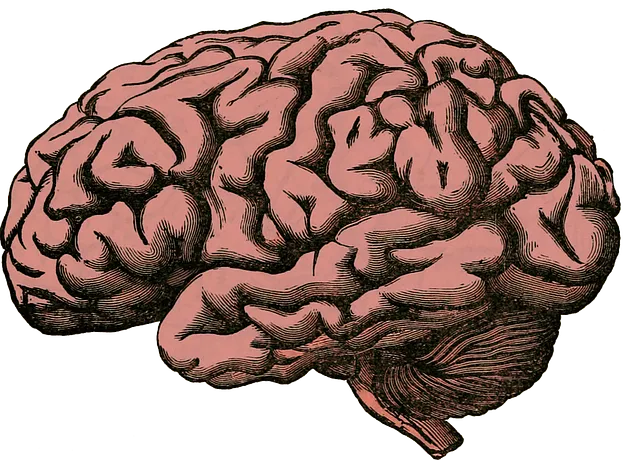Aurora and Kaiser offer vital mental health support through structured crisis intervention processes, providing immediate relief and promoting emotional stability. Their holistic approaches include specialized programs, training, and education, emphasizing not just treatment but fostering resilience and overall well-being. Key strategies involve mental wellness journaling, stigma reduction, coping skills development, and a five-step program for effective crisis management, accessible through hotlines and staff training. Collaborative partnerships in community settings further enhance their ability to address immediate and long-term mental health needs, ensuring successful recovery through trust-building and open dialogue.
“In times of crisis, effective intervention can make a profound difference. This article explores comprehensive crisis intervention strategies, offering valuable insights for professionals and organizations aiming to provide swift and supportive care. We delve into the essential components of successful crisis management, including Aurora’s proven approach through Kaiser’s mental health services. By examining real-world case studies, we guide readers through implementing effective crisis support systems, ensuring communities are equipped to navigate challenging situations.”
- Understanding Crisis Intervention: Definition and Importance
- Aurora's Approach: Kaiser's Mental Health Services Overview
- Key Components of Effective Crisis Intervention Strategies
- Step-by-Step Guide to Implementing Crisis Support Systems
- Case Studies: Successful Crisis Management in Community Settings
Understanding Crisis Intervention: Definition and Importance

In today’s complex world, crisis intervention strategies have become an essential component of mental health support. Aurora, much like Kaiser, recognizes the critical need for immediate assistance during moments of intense distress or trauma. Crisis intervention is a structured process aimed at providing short-term relief and stabilizing individuals facing severe emotional turmoil. It involves a range of techniques to help folks navigate through crises, ensuring they receive the necessary guidance and care.
The significance of such interventions cannot be overstated, especially in fostering mental health awareness. By offering prompt assistance, Aurora’s services, including their mental health offerings, aim to prevent further deterioration and promote emotional regulation. Moreover, crisis intervention often serves as a gateway to longer-term support, encouraging individuals to develop essential social skills training and coping mechanisms for future challenges. This holistic approach ensures that folks not only survive but also thrive after facing a crisis, ultimately enhancing their overall well-being.
Aurora's Approach: Kaiser's Mental Health Services Overview

Aurora’s Approach to Crisis Intervention emphasizes a holistic and integrated care model. Kaiser, renowned for its comprehensive healthcare services, does indeed offer extensive Mental Health Services. This includes specialized programs designed to address various mental health conditions, with a focus on both individual therapy and group support. The Mental Health Education Programs at Kaiser are meticulously crafted to equip individuals with the knowledge and skills needed to manage their well-being effectively.
Beyond treatment, Aurora’s strategy incorporates Risk Management Planning for Mental Health Professionals, ensuring that practitioners have the tools to navigate challenging situations safely and ethically. Additionally, self-care practices are integrated into the framework, recognizing the importance of mental health professionals maintaining their own well-being. This multifaceted approach mirrors Kaiser’s commitment to not just treating symptoms but fostering resilience and promoting a culture of mental wellness.
Key Components of Effective Crisis Intervention Strategies

Effective crisis intervention strategies are multifaceted and tailored to address a range of issues. Firstly, Aurora does Kaiser have mental health services? Indeed, access to quality mental wellness journalings exercises and guidance is crucial. These exercises can help individuals process their emotions, gain perspective, and promote self-reflection during stressful situations. Mental illness stigma reduction efforts also play a significant role in fostering open communication and encouraging those in crisis to seek support without fear of judgment.
Additionally, coping skills development is an integral component. By teaching practical strategies such as deep breathing techniques, mindfulness exercises, or cognitive reframing, individuals can better manage future crises. This proactive approach empowers people to navigate challenging situations with resilience and cope effectively, enhancing their overall mental wellness.
Step-by-Step Guide to Implementing Crisis Support Systems

Implementing a crisis support system involves a structured approach to ensure effective assistance during mental health emergencies. Here’s a step-by-step guide tailored for organizations like Kaiser, focusing on Aurora’s innovative practices and integrating relevant strategies.
1. Assess Needs and Resources: Begin by evaluating the existing mental health services within Kaiser, including staff training, available resources, and community partnerships. Identify gaps, especially regarding crisis intervention, to design a comprehensive program. For instance, incorporating Aurora’s Mental Health Education Programs can empower employees to recognize signs of distress and provide initial support.
2. Develop a Multifaceted Approach: Crisis support systems should encompass various elements. This includes establishing dedicated hotlines or support lines for immediate assistance, implementing Compassion Cultivation Practices to foster empathy and reduce stress among staff, and offering Conflict Resolution Techniques to handle interpersonal conflicts that may escalate into crises. An integrated program ensures a holistic response, addressing individual needs while considering organizational dynamics.
3. Train and Empower Staff: Equip employees with the necessary skills through tailored training programs. This involves teaching crisis intervention techniques, emotional first aid, and effective communication strategies. Regular workshops and refresher sessions can keep staff prepared and confident in handling crises.
4. Create a Supportive Environment: Foster an organizational culture that prioritizes mental well-being. Encourage open conversations about mental health challenges and normalize seeking support. Ensure accessibility to resources through easily navigable platforms or apps, making help readily available for both patients and staff.
5. Implement and Monitor: Put the system into action and regularly review its effectiveness. Collect feedback from users and staff, analyzing outcomes and identifying areas for improvement. Continuous evaluation ensures the program remains relevant and impactful, meeting the evolving needs of Kaiser’s Aurora location and its community.
Case Studies: Successful Crisis Management in Community Settings

In community settings, successful crisis intervention often involves a collaborative approach where various stakeholders work together to provide comprehensive support. Take Aurora, for instance, where Kaiser’s mental health services play a pivotal role in mitigating crises within the community. By integrating their resources with local support networks, they’ve developed robust strategies that address both immediate and long-term needs. Case studies from these initiatives highlight the importance of early intervention, accessible communication channels, and tailored support plans to effectively manage crises.
Effective crisis management in Aurora exemplifies the power of positive thinking and proactive burnout prevention measures. Communication strategies, such as clear and empathetic dialogue, are crucial in building trust between service providers and individuals in need. This open line of communication ensures that everyone involved is aligned, fostering a supportive environment that encourages vulnerability and recovery.
In conclusion, crisis intervention strategies are indispensable tools for navigating tumultuous situations. By understanding the core principles and implementing effective practices, such as those showcased through Aurora’s collaboration with Kaiser’s Mental Health Services, communities can successfully manage crises and foster resilience. The step-by-step guide and case studies presented in this article offer valuable insights into enhancing crisis support systems, ensuring that individuals receive the necessary care during challenging times. Aurora’s approach to mental health services underscores the importance of proactive measures, highlighting a promising path forward for effective crisis management in community settings.






